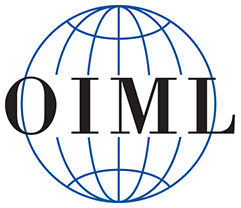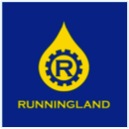Conformance testing — an element of conformity assessment, and also known as compliance testing, or type testing — is testing or other activities that determine whether a process, product, or service complies with the requirements of a specification, technical standard, contract, or regulation. Testing is often either logical testing or physical testing. The test procedures may involve other criteria from mathematical testing or chemical testing. Beyond simple conformance, other requirements for efficiency, interoperability or compliance may apply. Conformance testing may be undertaken by the producer of the product or service being assessed, by a user, or by an accredited independent organization, which can sometimes be the author of the standard being used. When testing is accompanied by certification, the products or services may then be advertised as being certified in compliance with the referred technical standard. Manufacturers and suppliers of products and services rely on such certification including listing on the certification body's website, to assure quality to the end user and that competing suppliers are on the same level.
The Common Criteria for Information Technology Security Evaluation is an international standard for computer security certification. It is currently in version 3.1 revision 5.

Metrology is the scientific study of measurement. It establishes a common understanding of units, crucial in linking human activities. Modern metrology has its roots in the French Revolution's political motivation to standardise units in France when a length standard taken from a natural source was proposed. This led to the creation of the decimal-based metric system in 1795, establishing a set of standards for other types of measurements. Several other countries adopted the metric system between 1795 and 1875; to ensure conformity between the countries, the Bureau International des Poids et Mesures (BIPM) was established by the Metre Convention. This has evolved into the International System of Units (SI) as a result of a resolution at the 11th General Conference on Weights and Measures (CGPM) in 1960.

The International Organization of Legal Metrology, is an intergovernmental organisation that was created in 1955 to promote the global harmonisation of the legal metrology procedures that underpin and facilitate international trade.
Accreditation is the independent, third-party evaluation of a conformity assessment body against recognised standards, conveying formal demonstration of its impartiality and competence to carry out specific conformity assessment tasks.

Product certification or product qualification is the process of certifying that a certain product has passed performance tests and quality assurance tests, and meets qualification criteria stipulated in contracts, regulations, or specifications.
ISO/IEC 17025General requirements for the competence of testing and calibration laboratories is the main ISO/IEC standard used by testing and calibration laboratories. In most countries, ISO/IEC 17025 is the standard for which most labs must hold accreditation in order to be deemed technically competent. In many cases, suppliers and regulatory authorities will not accept test or calibration results from a lab that is not accredited. Originally known as ISO/IEC Guide 25, ISO/IEC 17025 was initially issued by ISO/IEC in 1999. There are many commonalities with the ISO 9000 standard, but ISO/IEC 17025 is more specific in requirements for competence and applies directly to those organizations that produce testing and calibration results and is based on somewhat more technical principles. Laboratories use ISO/IEC 17025 to implement a quality system aimed at improving their ability to consistently produce valid results. It is also the basis for accreditation from an accreditation body.
IEC 61508 is an international standard published by the International Electrotechnical Commission consisting of methods on how to apply, design, deploy and maintain automatic protection systems called safety-related systems. It is titled Functional Safety of Electrical/Electronic/Programmable Electronic Safety-related Systems.
The Standards Council of Canada (SCC) / Conseil Canadien des Normes (CCN) is a Canadian organization with the mandate to promote voluntary standardization in Canada. The SCC is responsible for:
ISO 15189 Medical laboratories — Requirements for quality and competence is an international standard that specifies the quality management system requirements particular to medical laboratories. The standard was developed by the International Organisation for Standardization's Technical Committee 212. ISO/TC 212 assigned ISO 15189 to a working group to prepare the standard based on the details of ISO/IEC 17025:1999 General requirements for the competence of testing and calibration laboratories. This working group included provision of advice to medical laboratory users, including specifics on the collection of patient samples, the interpretation of test results, acceptable turnaround times, how testing is to be provided in a medical emergency, and the lab's role in the education and training of health care staff. While the standard is based on ISO/IEC 17025 and ISO 9001, it is a unique document that takes into consideration the specific requirements of the medical environment and the importance of the medical laboratory to patient care.
The Common Criteria model provides for the separation of the roles of evaluator and certifier. Product certificates are awarded by national schemes on the basis of evaluations carried by independent testing laboratories.
Public health laboratories (PHLs) are governmental reference laboratories that protect the public against diseases and other health hazards. The 2005 International Health Regulations came into force in June 2007, with 196 binding countries that recognised that certain public health incidents, extending beyond disease, ought to be designated as a Public Health Emergency of International Concern (PHEIC), as they pose a significant global threat. The PHLs serve as national hazard detection centres, and forward these concerns to the World Health Organization.

Certified reference materials (CRMs) are 'controls' or standards used to check the quality and metrological traceability of products, to validate analytical measurement methods, or for the calibration of instruments. A certified reference material is a particular form of measurement standard.
The South African National Accreditation System (SANAS) is the official accreditation body for South Africa. Founded in 1996, SANAS is headquartered in Pretoria, South Africa. SANAS accreditation certificates are a formal recognition by the Government of South Africa that an organisation is competent to perform specific tasks.
The United Kingdom Accreditation Service (UKAS) is the sole national accreditation body recognised by the British government to assess the competence of organisations that provide certification, testing, inspection and calibration services. It evaluates these conformity assessment bodies and then accredits them where they are found to meet relevant internationally specified standards.

National Accreditation Board for Testing and Calibration Laboratories (NABL) provides accreditation to Conformity Assessment Bodies (Laboratories) in India. NABL Schemes include Accreditation (Recognition) of Technical competence of testing, calibration, medical testing laboratories, Proficiency testing providers (PTP) & Reference Material Producers (RMP) for a specific scope following ISO/IEC 17025, ISO 15189, ISO/IEC 17043 & ISO 17034:2016 Standards. It has Mutual Recognition Arrangement (MRA) with Asia Pacific Accreditation Cooperation (APAC), International Laboratory Accreditation Cooperation (ILAC).
IEC 62443 is an international series of standards that address cybersecurity for operational technology in automation and control systems. The standard is divided into different sections and describes both technical and process-related aspects of automation and control systems cybersecurity.

Founded in 2009, "Runningland Metrology & Testing (Shanghai) Co., Ltd" is a Shanghai-based accredited third party laboratory that specializes in instruments metering, condition monitoring, calibration and testing petrochemical products. The company was founded by David Zhou, who is an active member of STLE ASTM D2 Committee, and SAE, and co-founded by Ti Zhou who is a member of Shanghai Lubrication Trade Association. As a commercial third party laboratory, the organization also collaborates with educational institutions and research associations across China. Oil analysis is still a relatively developing idea and has become an increasingly important concept in The People's Republic of China. Because the oil analysis market in China is growing, Runningland has developed a lab that specializes in grease testing. In 2015, STLE has published a report indicating its previous activities and plans to expand into the China market by organizing the China Advisory Council, which consists of 15 prominent members of China's lubrication industry including David Zhou, Chairman and Co-founder of Runningland.
The National Association of Testing Authorities (NATA) is the recognised national accreditation authority for analytical laboratories and testing service providers in Australia. It is an independent, not-for-profit organisation, governed by a board of directors that has representation from NATA members, industry, government and professional bodies.

The Department of Standards Malaysia is the National Standards Body and the National Accreditation Body, providing confidence to various stakeholders, through credible standardisation and accreditation services for global competitiveness. Governed by the Standard of Malaysia Act 1996, the Department of Standard Malaysia is an agency established on 28 August 1996 under the purview of Ministry of International Trade and Industry (MITI).






